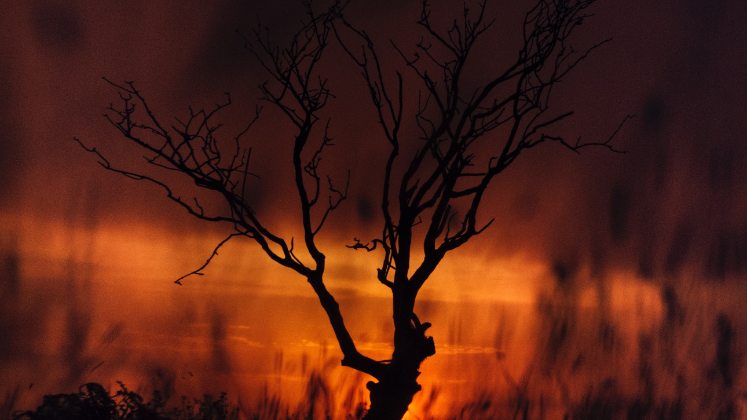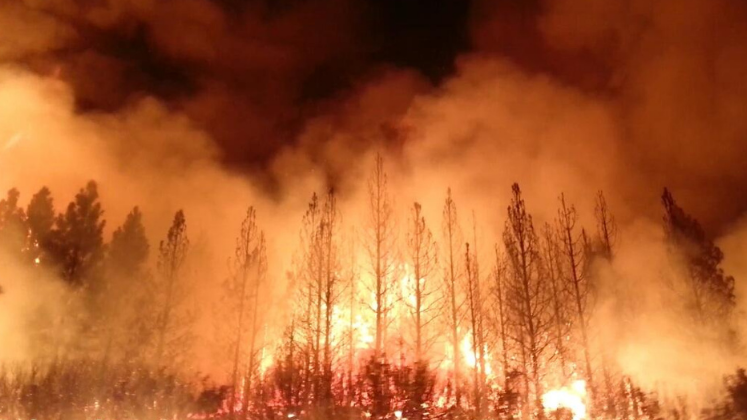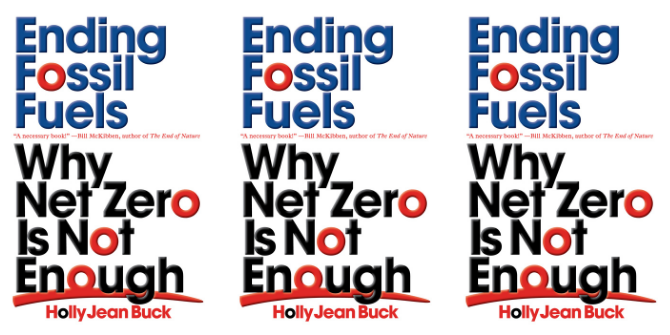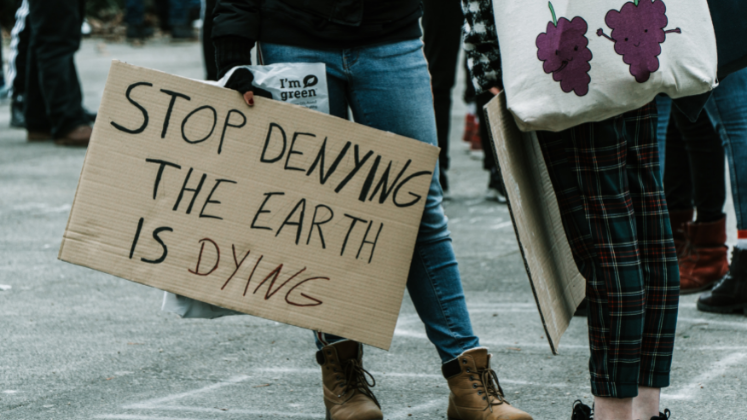In Horizon Work: At the Edge of Knowledge in an Age of Runaway Climate Change, Adriana Petryna explores ‘horizoning’ as a conceptual device that sets up new ranges and circumstances for action in the face of climate crisis. Drawing on interviews with emergency responders, climate and wildlife scientists and Indigenous groups, Petryna’s anthropological approach introduces nuanced human and cultural perspectives into discussions around climate change, writes Karl Reimer.
Horizon Work: At the Edge of Knowledge in an Age of Runaway Climate Change. Adriana Petryna. Princeton University Press. 2022.
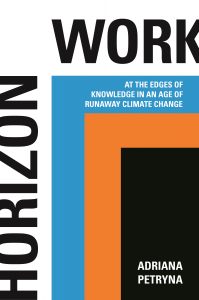 Find this book (affiliate link):
Find this book (affiliate link):![]()
Horizon Work is a provocative text that challenges the perspective through which humans approach global climate change. Consider that increases to carbon emissions are threatening physical systems on Earth. Climate scientists provide valuable research in relation to these threats, but their models are frequently insufficient. Vivid forest fires are given attention by media outlets and governments but with the short-term intention of extinguishing the fires rather than addressing the underlying issue. The response to these concerns, anthropologist Adriana Petryna suggests, is ‘horizoning’.
The central anthropological move to introduce ‘horizon work’ is an important one. Petryna shares a variety of perspectives on adjusting and adapting to the climate crisis. This move can best be understood in the prologue where Petryna explains how utilising horizoning (that is, ‘horizon’ as a verb) as a conceptual device allows discovery of a ‘new range and even circumstances for action that otherwise seem precluded by the disastrous onrush of runaway change’ (5). This perspective is informed by emergency responders, climate and wildlife scientists, Indigenous groups and others she interviewed as part of the project.
In developing this notion of horizoning, Petryna follows former US Geological Survey director Marcia McNutt in observing that climate change is not a ‘singular phenomenon or event’ but rather ‘an ongoing process of destabilization in which scientific observers can no longer establish a reasonable baseline for projecting future patterns of change’ (39).

Image Credit: Photo by Luke Moss on Unsplash
Petryna attests that climate research has generated a ‘false sense of stability’ because of its focus on producing linear extrapolations (26). This is an extremely important point from a scientific perspective and is supported by influential articles by Paul Valdes (2011) and Sebastian Bathiany et al (2016). Comprehensive climate modelling is a complex task, and many low-dimension (linear) approaches fail to highlight abrupt events. Structural uncertainty exists in climate models because it is not clear which equations in the models are most appropriate (tipping points). As influential climate scientist Valdes observes, ‘not being able to start from a realistic global temperature distribution for the late Palaeocene makes it unrealistic to simulate [further abrupt warming]’ (414). Petryna’s scientific research is consistent with Valdes’s conclusions.
Following its discussion of the scientific background, Horizon Work shifts in Chapter Five to the human aspects of climate risks. Specifically, Petryna explores how wildlife professionals, emergency wildfire responders and Indigenous groups respond to rapidly changing fire behaviours. In doing so, she utilises her anthropological lens to paint a picture as she writes, bringing the reader alongside for her storytelling of research. Consider her description of stability:
Stability isn’t an abstraction; it consists of a real set of relations among human, nonhuman and more-than-human beings […] the settler colonial approach of fire suppression has tried to dismantle this continually assessed operating system, relegating the problem of stabilization to specialized management sectors and scientific silos (84).
Here, she observes the contrast between the Indigenous approach to climate stability versus the colonial one. Indigenous groups in North America previously saw stability as an interaction between human and non-human beings, including the natural landscape. She points out that ‘the Salish [an Indigenous group] welcomed the lightning that caused fires’ as part of their stewardship of the land (87).
It is this original approach to storytelling that is most striking about Petryna’s book. She blends the scientific narrative in the first half with diverse human stories in the second. In doing so, she adjusts the colonial climate ‘narrative’ from one of human engineering to stability within nature.
Two connected elements of Petryna’s book deserve further attention. The first criticism is connected to one of the strengths of the book. Horizon Work is written as an anthology of perspectives on the climate crisis. Petryna has done incredible work to collect such a varied selection of interviews and discussions as part of her research. Yet, this anthology approach means that Petryna’s argument is not a closely linked narrative but rather a painted storyboard of diverse views on the changing climate. The reader has to read deeply to discover the unique approach Petryna brings.
Second, more could be done in the book to introduce readers to the scientific complexities associated with climate risks alongside the human perspective. The text is hasty at times from a scientific perspective. Making statements like ‘for the scientists I got to know, climate change is ‘‘pretty much a done deal for the next several hundred years’’’ (151), followed by authoritative arguments thereafter, means that Petryna is extrapolating from a limited data set to make objective conclusions.
As an example, Chapter One of the text focuses on the increase in carbon dioxide (CO2) emissions. However, increased CO2 does not in itself directly relate to increased instability. Rather, different ecosystems will respond uniquely according to the increase in CO2. Both risks and opportunities present themselves. For instance, some crops may increase their yield while others decrease their yield (Daniel Taub, 2010). The point is that climate stability is difficult to discuss without considering individual ecosystems.
These concerns are minor in relation to the larger project being pursued. However, climate risk mitigation is highly politicised, particularly in the United States where Petryna’s text is published. Developing scientific nuance alongside the rich human-focused lens Petryna utilises would further credibility and encourage a wider readership.
Petryna achieves her goal in Horizon Work of introducing nuanced human and cultural perspectives to the already busy discussion of climate scientists predicting points of ‘no return’ that must be avoided. Any weaknesses from a scientific and narrative perspective should not take away from her original contribution to the climate discussion. Petryna’s anthropological lens of horizoning will be valuable to this discourse.
Note: This review gives the views of the author, and not the position of the LSE Review of Books blog, or of the London School of Economics and Political Science. The LSE RB blog may receive a small commission if you choose to make a purchase through the above Amazon affiliate link. This is entirely independent of the coverage of the book on LSE Review of Books.



